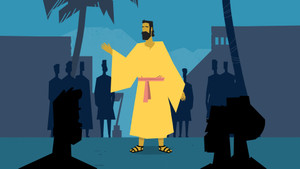
4:31

Gospel is one of the most common words in a Christian’s vocabulary. But what does it mean in the original languages of the Bible? In this video, we’ll discover that gospel refers to a royal announcement about Jesus, who is the crucified and risen King of the world who overcame death with his love.


